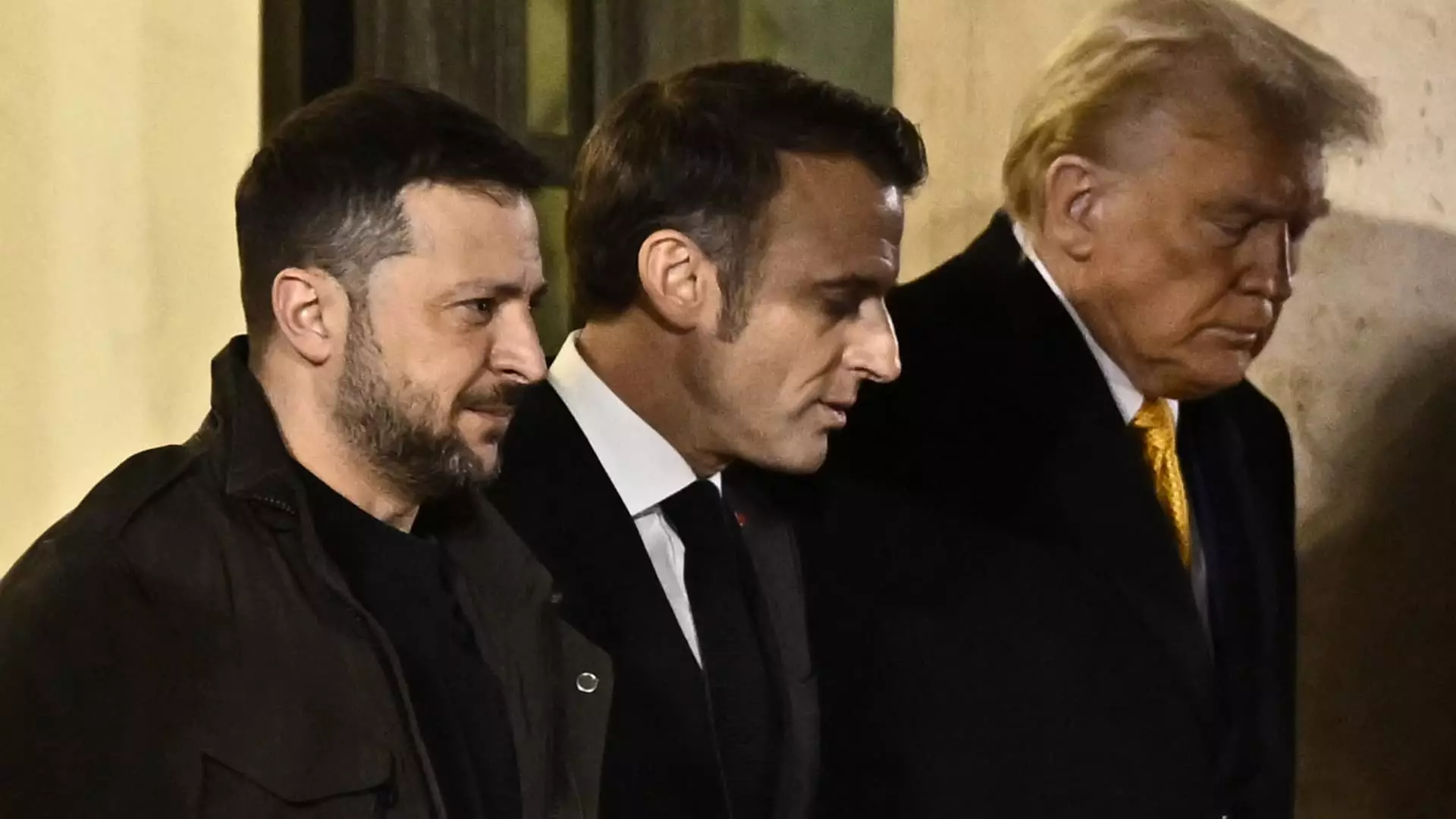As the Russia-Ukraine war enters its third year, a palpable tension has emerged from the geopolitical landscape of Europe, particularly regarding the ongoing peace efforts. Recent developments at the Munich Security Conference have raised alarm bells across the continent, igniting fears that Europe may be sidelined in critical negotiations led by the United States and Russia. In response, European leaders have convened in Paris for an emergency summit, orchestrated by French President Emmanuel Macron, to discuss Europe’s potential role in the upcoming peace talks scheduled to take place in Saudi Arabia. This urgent gathering underscores the rising anxiety within Europe about being excluded from key discussions that would shape the future of Ukraine.
The sense of urgency is exacerbated by the statement from U.S. officials, which indicated that Europe might not have a direct role in the negotiations. Marco Rubio, a high-ranking member of the U.S. government, is set to engage with Russian diplomat Sergei Lavrov, an arrangement that has raised questions about the absence of Ukrainian representation at the outset of discussions. President Volodymyr Zelenskyy’s confirmation of his travel to Riyadh, combined with his assertion that Ukraine would not partake in the initial talks, signals a troubling disconnect between the parties directly impacted by the conflict and the negotiators from distant powers.
Zelenskyy’s insistence that any negotiations regarding Ukraine, sans Ukrainian involvement, would be futile reveals a critical facet of modern geopolitics: the importance of including those directly affected in conflict resolutions. The Ukrainian leader’s sentiments serve as a clarion call, challenging the legitimacy of discussions that exclude Ukraine from the conversation. This situation is particularly ironic, given President Trump’s prior assertion that negotiations would include Zelenskyy, which has since caused confusion regarding Ukraine’s role in the peace talks.
Furthermore, U.S. Special Presidential Envoy Keith Kellogg has echoed the sentiment that European allies may not be granted a physical seat at the negotiating table, further complicating the already intricate web of diplomatic relations. The absence of a collaborative atmosphere raises serious concerns: How can effective security guarantees for Ukraine be established without the region’s stakeholders having a direct voice in the negotiations? Lavrov’s comment, questioning the role of European countries in talks about Ukraine, amplifies the notion that European leaders may be rendered spectators rather than active participants in a matter that profoundly affects their security and stability.
Despite these challenges, several European leaders have made it clear that any lasting peace settlement must include both Ukrainian and European involvement. Kaja Kallas, the European Union’s foreign policy chief, emphasized this point, asserting that the success of any agreement hinges on the participation of the nations directly impacted by the conflict. The idea of a sustainable peace necessitates not just signing a document but implementing and supporting it through cooperation among the nations involved.
European Commission President Ursula von der Leyen’s warning that a failure to achieve a fair resolution would undermine not only European interests but also those of the United States further elucidates the interconnectedness of security within the Western alliance. This recognition is critical as European leaders ponder their next steps.
The summit in Paris gathers representatives from several European nations, including Germany and Poland, with the U.K. Prime Minister also in attendance. Keir Starmer has expressed his desire to serve as a bridge between Washington and Brussels, aiming to articulate Europe’s critical role in ensuring a peaceful resolution for Ukraine. His comments about potentially deploying British troops to enhance European security showcase a commitment to collective international efforts in mitigating the conflict’s fallout.
Moreover, discussions surrounding an increase in defense spending among NATO members reflect an increased awareness of the pressing need for greater military preparedness in light of the evolving threat landscape posed by Russia. This shift towards enhanced collaboration on defense is indicative of a more unified approach to European security and resilience.
As the dynamics of the Russia-Ukraine war shift, Europe must assert its interests and elevate its role in the ongoing peace negotiations. The events in Riyadh will set the tone for the future, but without a united front from European leaders that encompasses both military readiness and diplomatic engagement, the risk of being sidelined in critical discussions looms large. The decisions made in these upcoming talks will have lasting implications, not only for Ukraine but for the stability and security of Europe as a whole. Thus, unity, cooperation, and proactive involvement are essential for Europe to navigate the choppy waters of this geopolitical crisis and secure a just resolution for the conflict.


Leave a Reply